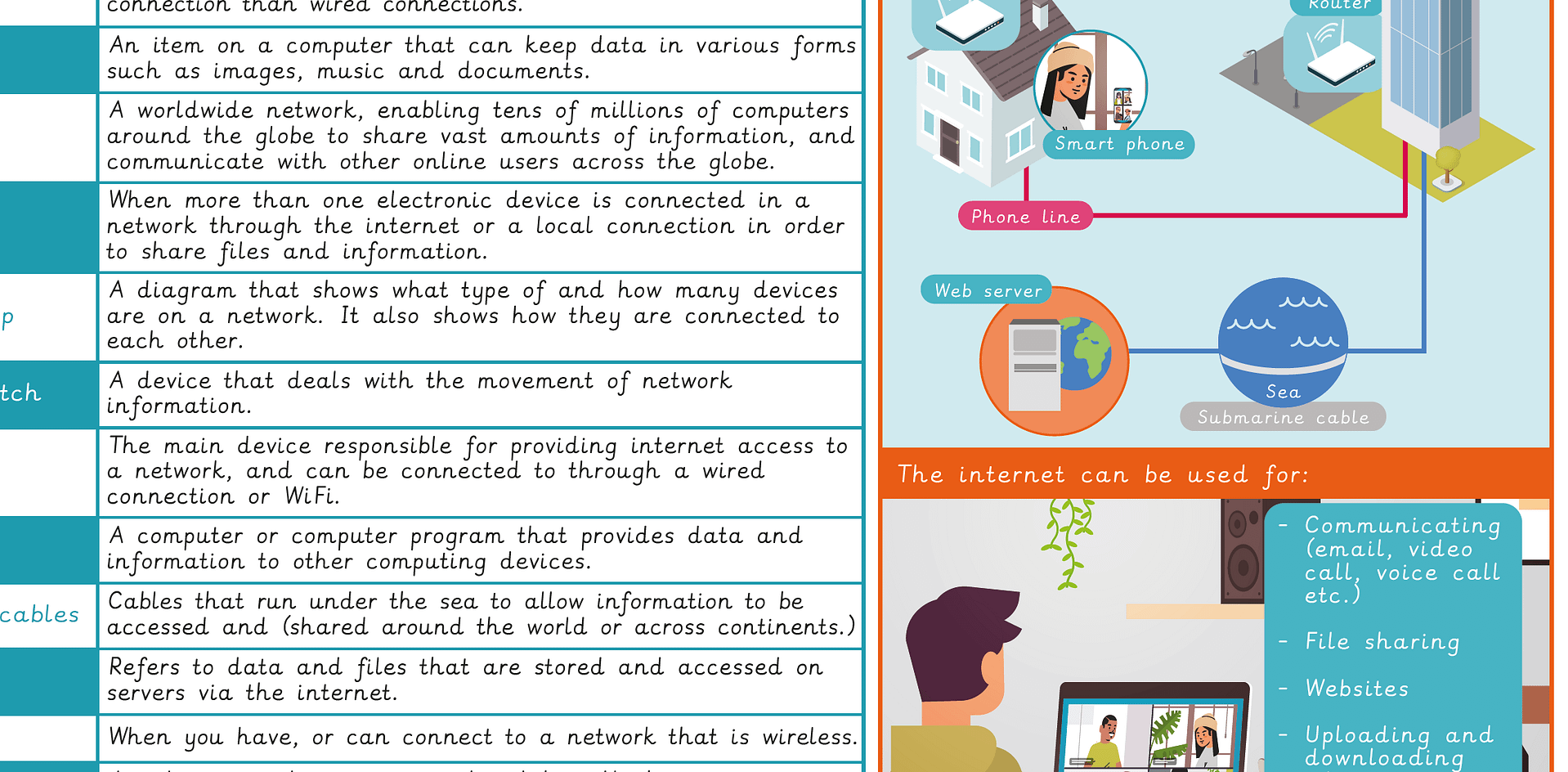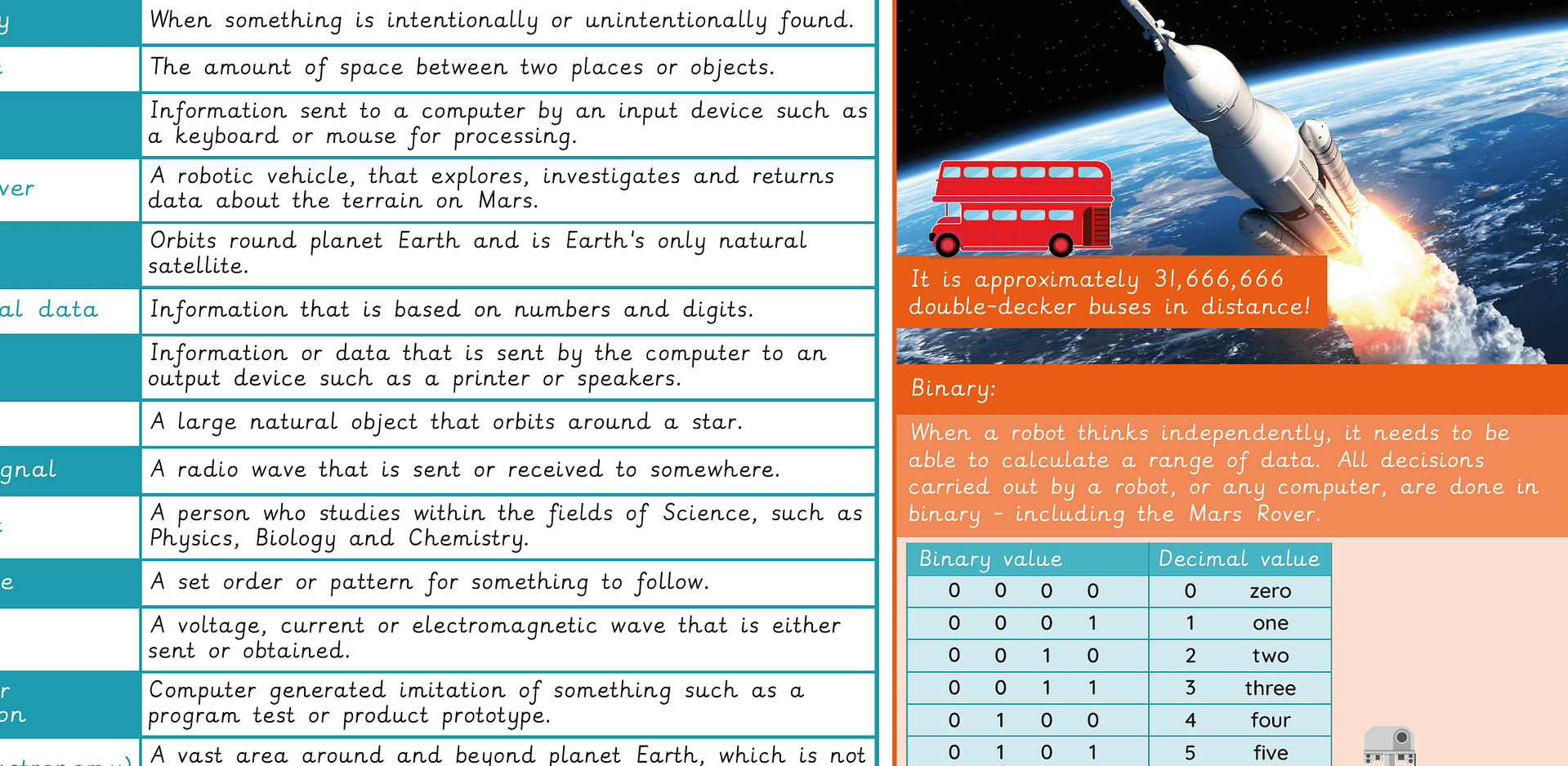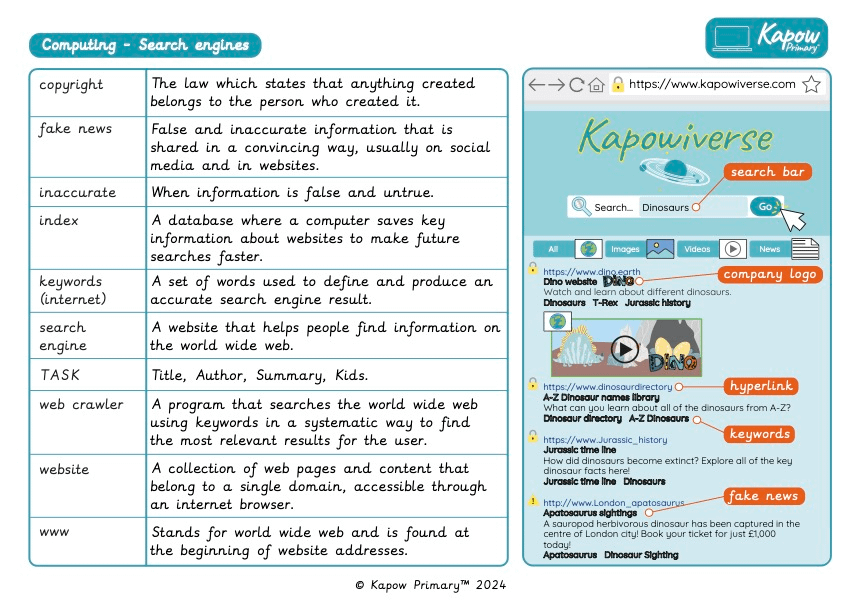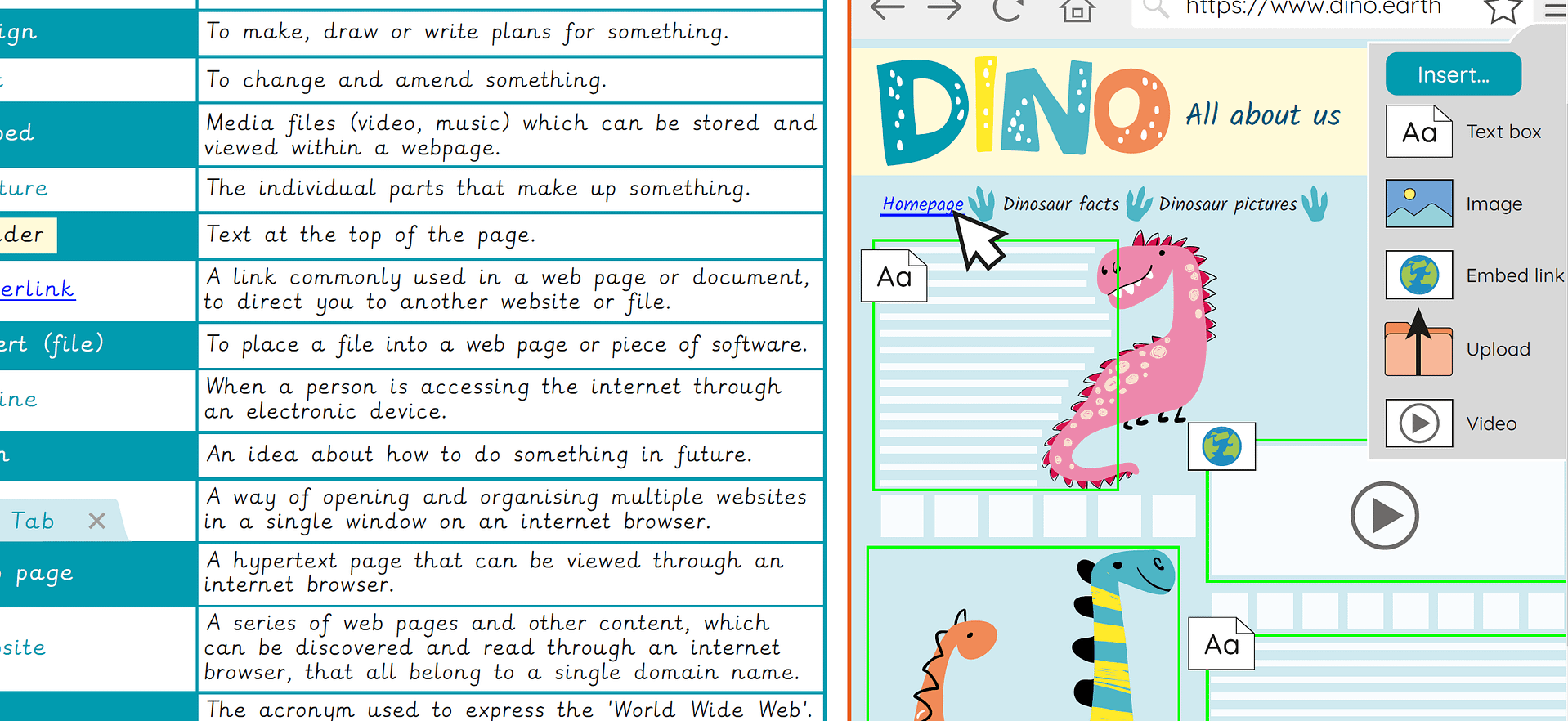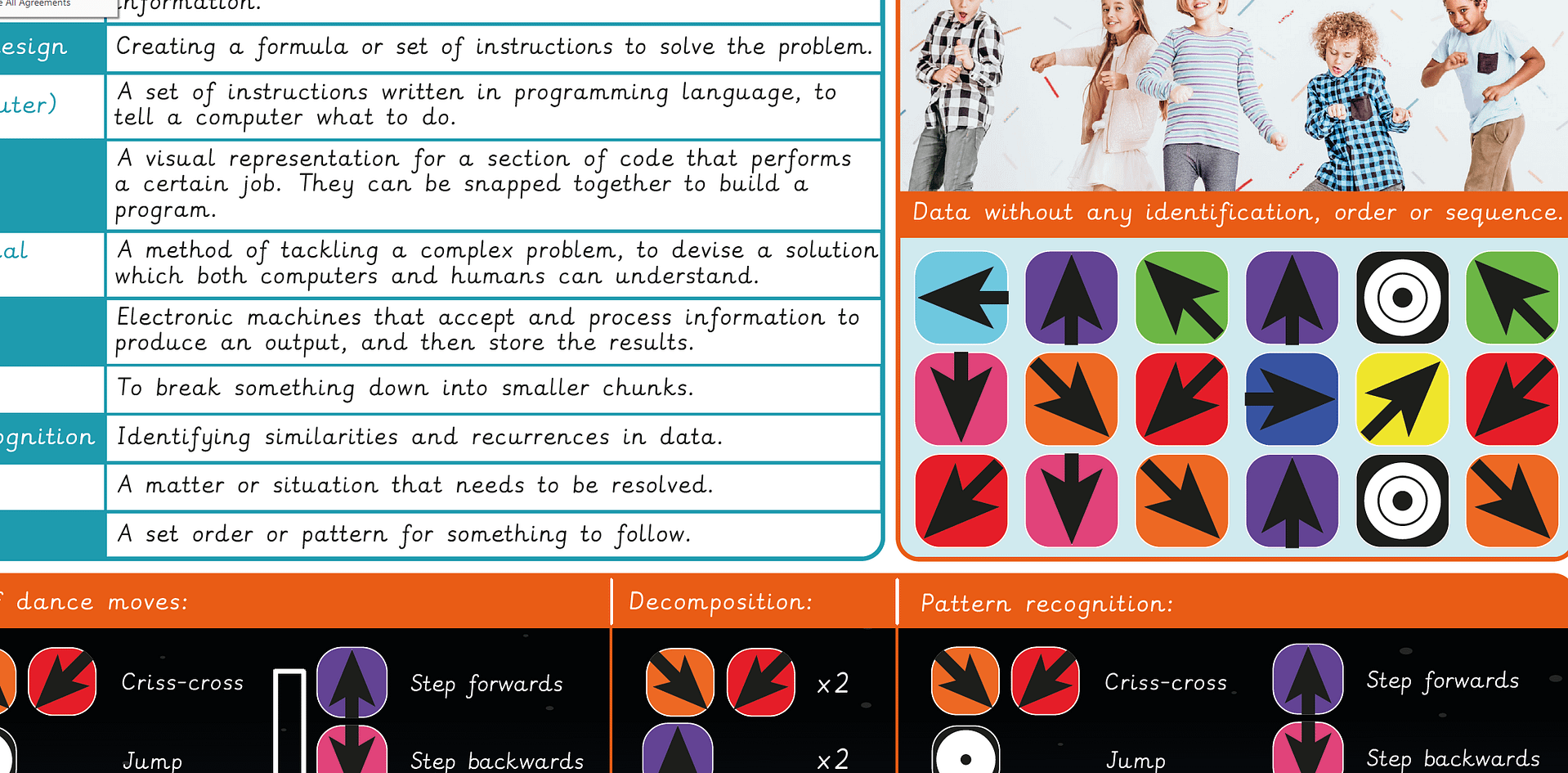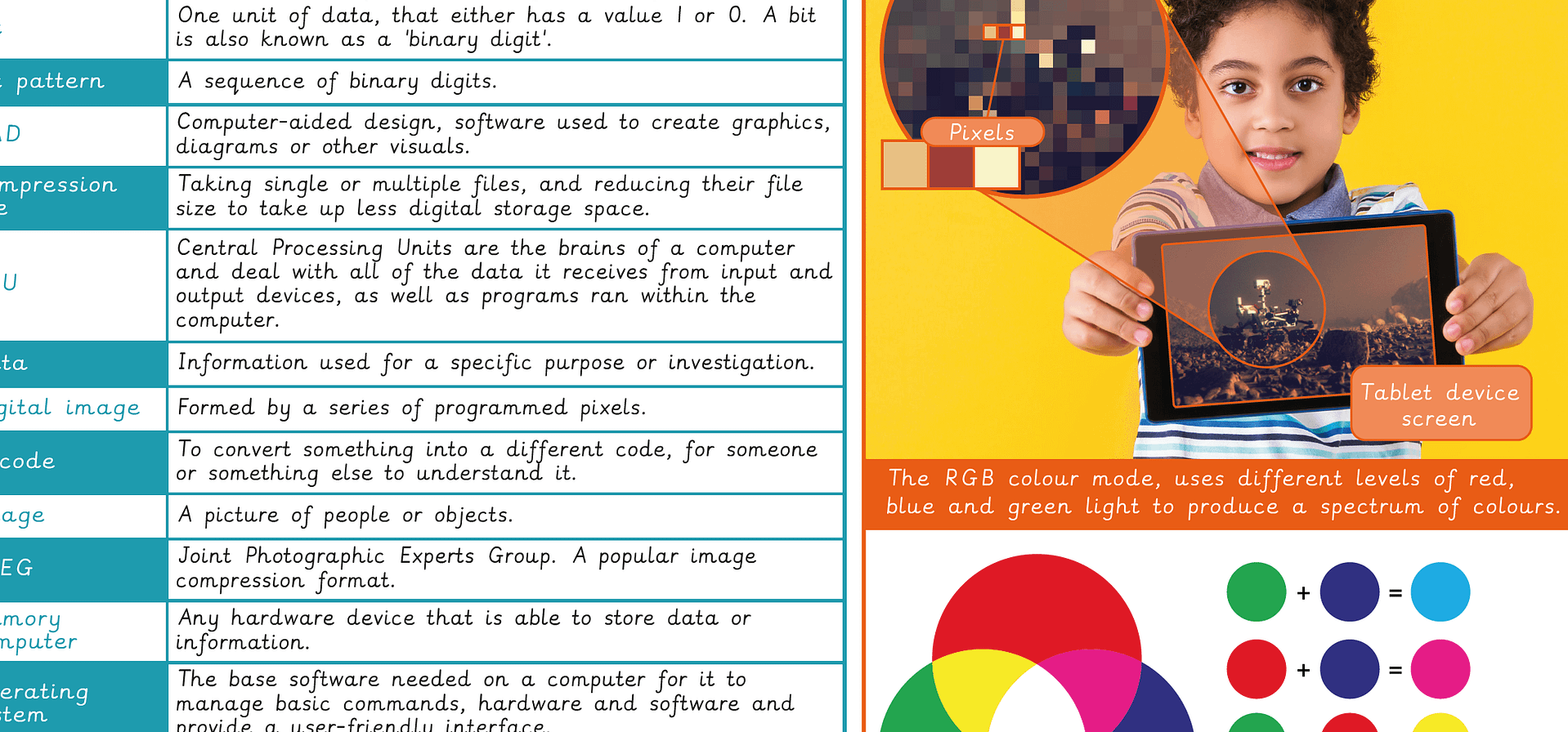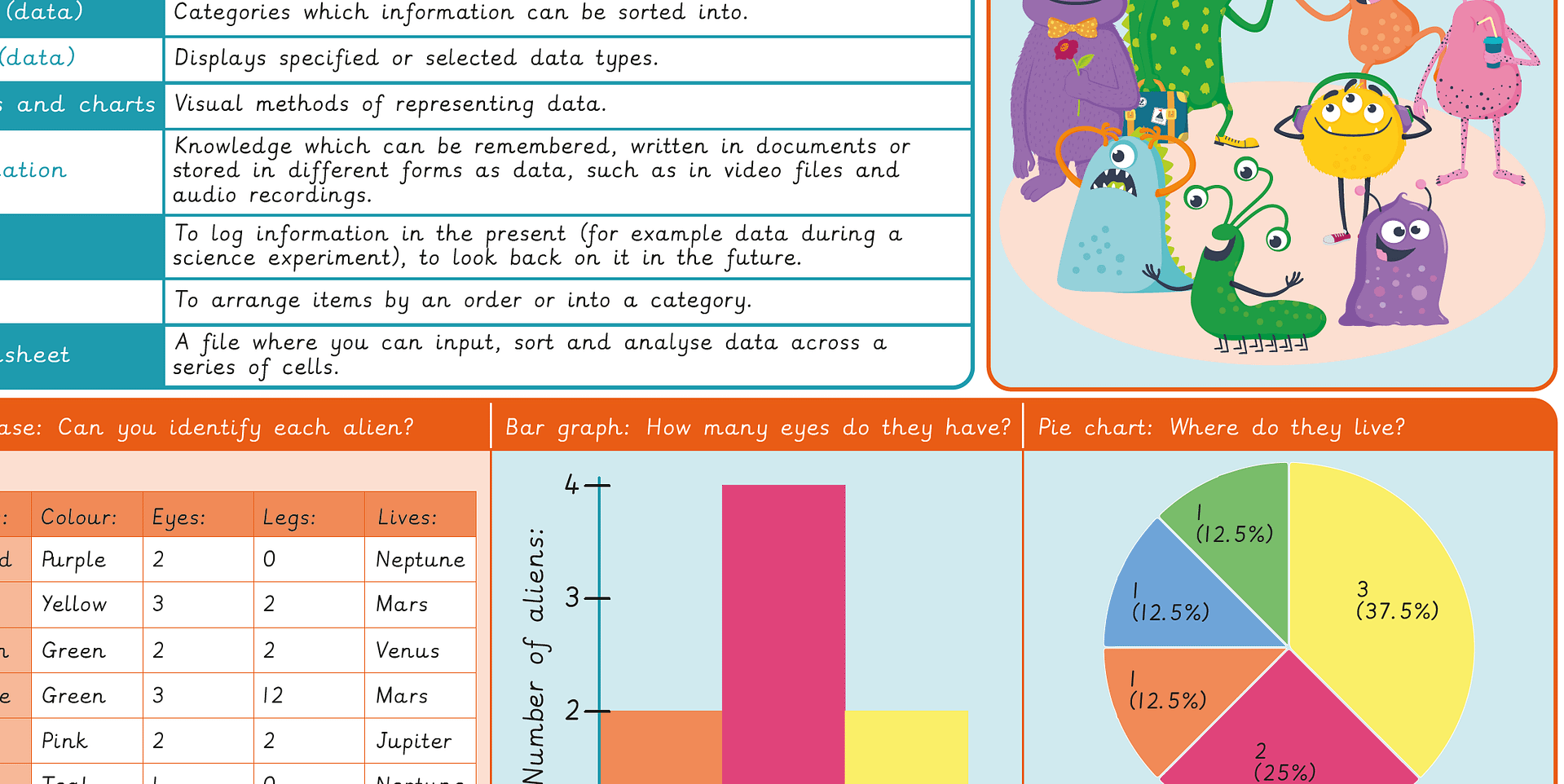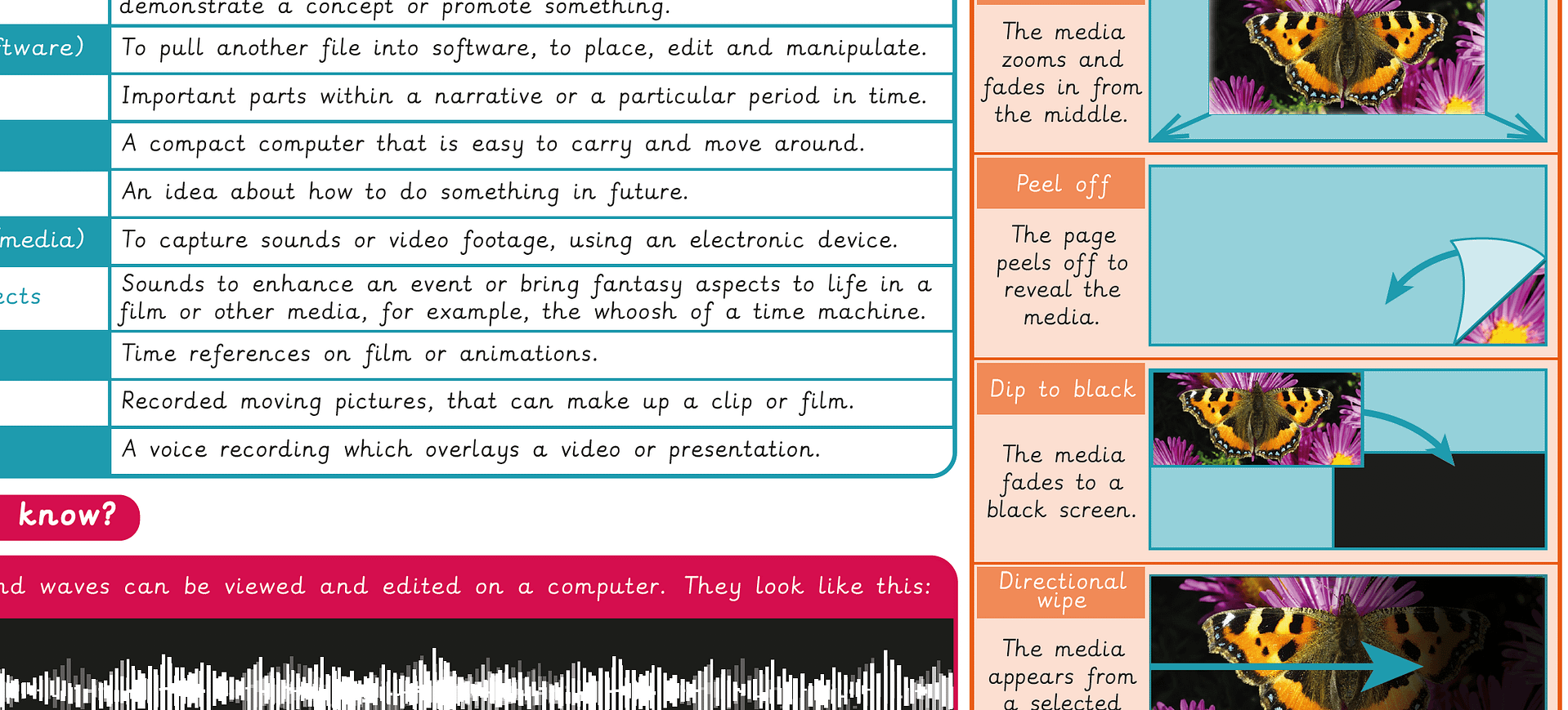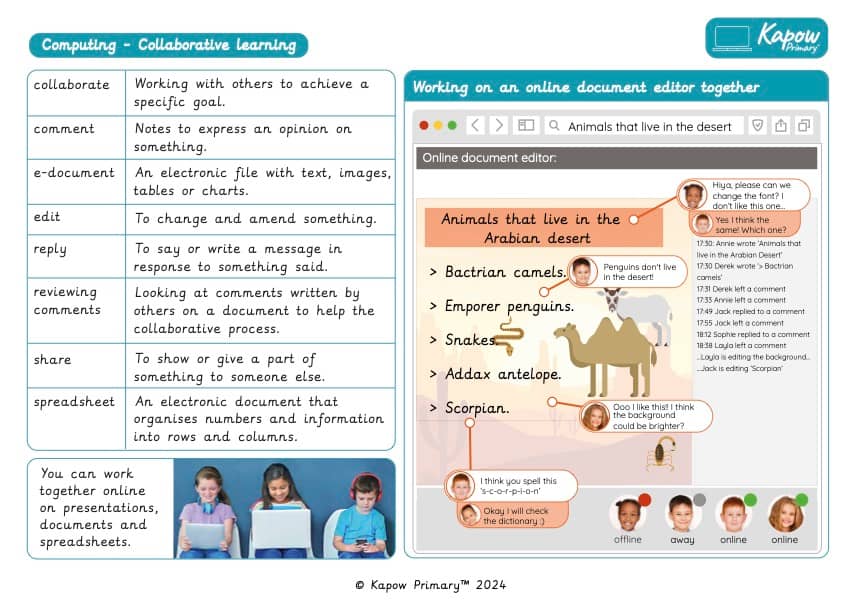Teaching resource: Knowledge organiser
Knowledge organiser – Computing Y5: Mars Rover 1
Knowledge organiser – Computing Y5: Search engines
Knowledge organiser – Computing Y4: Website design
Knowledge organiser – Computing Y4: Computational thinking
A Knowledge organiser that captures the essential knowledge and skills learnt throughout the unit Computing, Year 4, Computational Thinking.
This resource is designed to support the children as they explore computational thinking. It highlights key vocabulary and concepts, including abstraction, decomposition, pattern recognition and algorithm design. The resource introduces code blocks and the role of sequencing in solving problems using logical steps. It helps the children understand how computers process instructions and encourages them to break down problems into manageable parts. It is perfect for consolidating essential knowledge and fostering problem-solving skills in programming and everyday situations.

